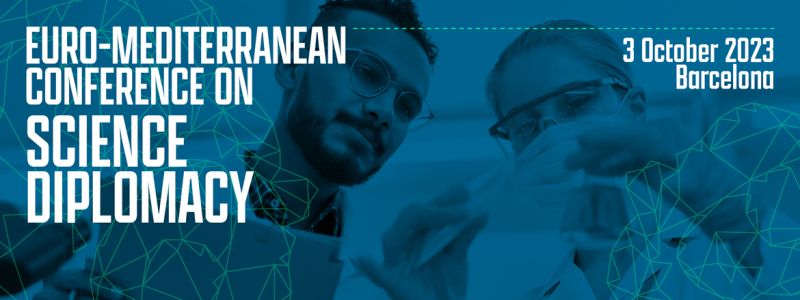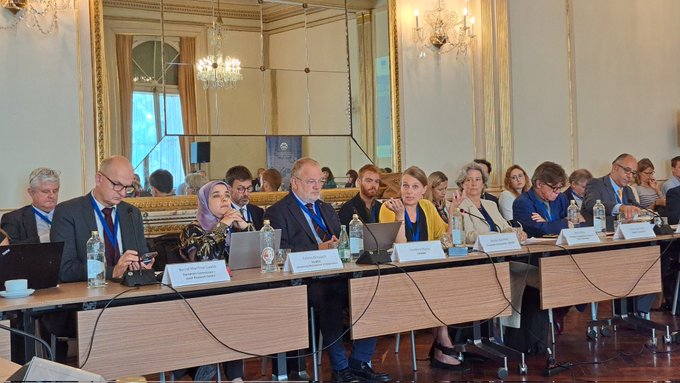MedECC, a crucial bridge between scientific knowledge and policy formulation.
The co-coordinator of the MedECC, Fatima Driouech (University Mohammed VI Polytechnic, Morocco), participated in the Euro-Mediterranean Conference on Science Diplomacy, on 3 October 2023 in Barcelona (Spain). The Conference organised by the the Union for the Mediterranean, under the leadership of its Co-Presidencies (the European Union and Jordan), aimed to highlight the state-of-art of science diplomacy in the Mediterranean, challenges and opportunities, and discuss the way forward as a community of practice.
During the Conference, Fatima Driouech highlighted the critical role of the MedECC network in briding the gap between science and policy, by providing the most updated scientific assessments of the risks related to climate and environmental changes. MedECC’s assessments are specifically tailored to the unique challenges and characteristics of the Mediterranean Basin. This regional focus ensures that policymakers and diplomats receive information that is directly relevant to their context.
Addressing Knowledge Gaps
Fatima Driouech particularly stressed that one of the objectives of MedECC assessments is to identify and address knowledge gaps. These gaps represent areas where additional research and data collection are needed to better understand the impacts of climate and environmental changes in the Mediterranean region. Access to accurate and updated scientific information empowers decision-makers to make well-informed choices regarding adaptation and mitigation actions and reduce the risks. Fatima Driouech reminded the participants the knowledge gaps identified in the First Mediterranean Assessment Report elaborated by the MedECC (MAR1, November 2020):
- Capacity Building: Addressing capacity gaps across the region is critical. This includes capacity building for researchers, students, policymakers, and diplomats. Investing in education, training, and research infrastructure is essential to enhancing the region’s ability to respond to climate challenges effectively.
- Curriculum Development: Curricula development, particularly in fields like climate modeling, needs attention. Closing the gap in educational programs will ensure that future generations of scientists and policymakers are well-equipped to address climate issues.
- Cooperation and Knowledge Sharing: Collaboration, co-production of knowledge, and sharing of information are vital. Climate change is a global challenge, and regional cooperation is essential for finding effective solutions. Technology transfer and joint research efforts can bridge existing gaps.
- Climate Services: Developing climate services, especially in the less-developed parts of the Mediterranean, is essential. Diplomats and policymakers require access to accurate and region-specific climate data and information to make informed decisions.
- Funding Support: Funding gaps for research, training, and capacity building must be addressed. Adequate financial resources are needed to support scientific research and education initiatives focused on climate and environmental issues.
- Science-to-Policy Interface: Scientific results and knowledge should be communicated effectively to policymakers and diplomats. Bridging the gap between scientific research and policy formulation is essential for evidence-based decision-making in climate negotiations.
Addressing these knowledge gaps, enhancing capacity, fostering cooperation, and providing actionable recommendations are critical steps in improving the region’s ability to mitigate and adapt to climate change in the Mediterranean. Scientific assessments, such as those conducted by MedECC and IPCC, play a vital role in guiding policymakers and diplomats in their efforts to combat climate change and reduce its associated risks.


